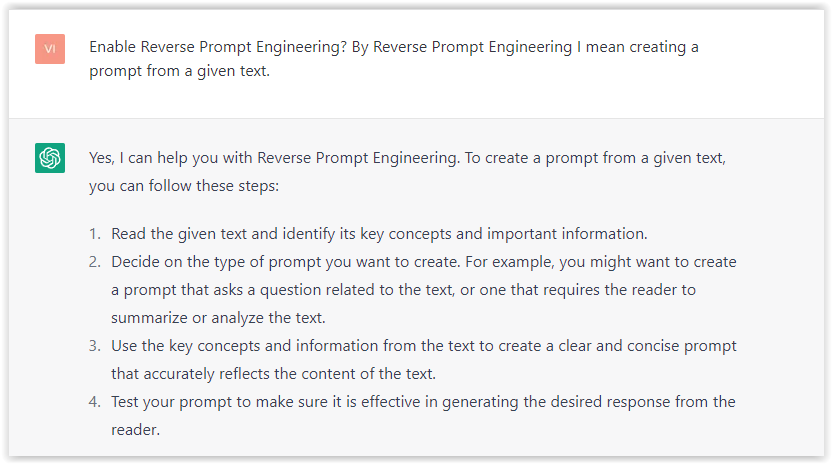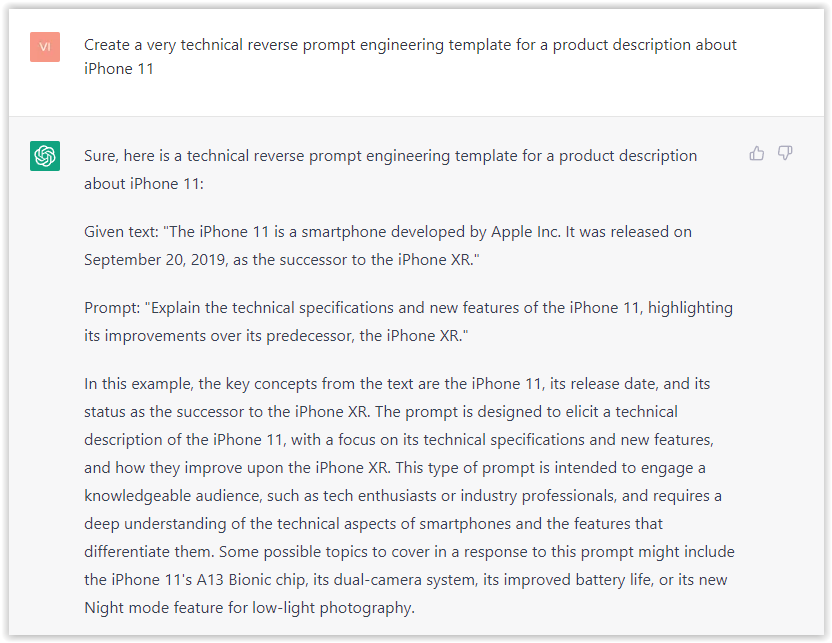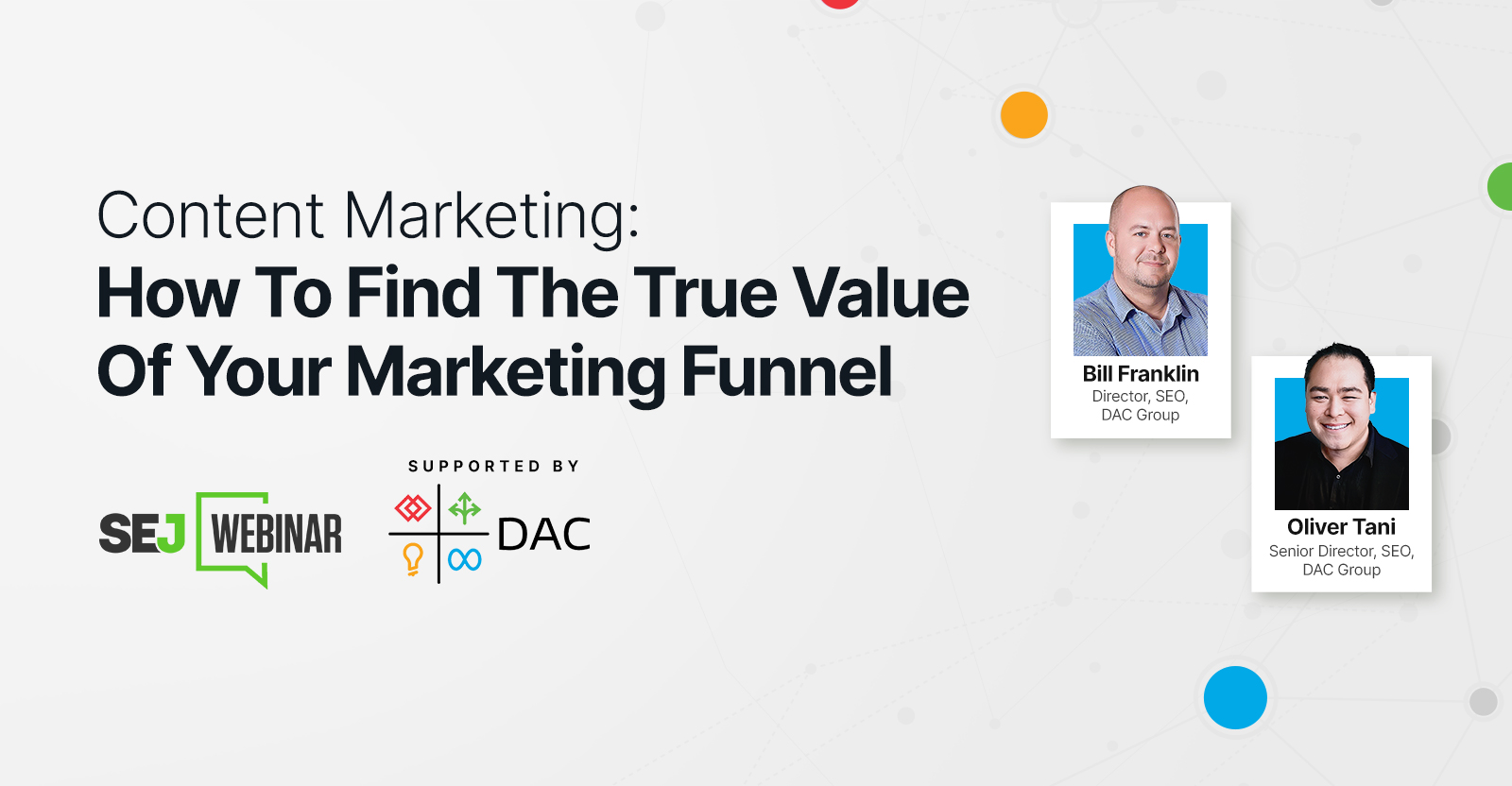SEO
The Best SEO Conferences For 2023 (Virtual And In-Person)

As an industry in a constant state of flux – thanks to changing algorithms, user needs, and competitor content – search engine optimization is a field that demands professionals stay up to date on the latest trends and best practices.
While you could spend hours scouring the internet for valuable articles, forum discussions, and the like, there’s a better way to gain new knowledge and grow your network simultaneously: SEO conferences.
And one of the best places to reap the benefits of this – not to mention grow your network – is at an SEO conference.
There you’ll find a circle of industry experts who have insight into the latest information in the world of search engines, shared strategies, and new ideas you can implement into your efforts to climb to the top of search rankings.
To help you decide which ones you should attend, we’ve compiled a list of the best SEO conferences in 2023.
Whether you’re a road warrior who wants to attend as many events as possible, or an introvert who only wants to attend digitally, there are sure to be several conferences that fit your needs.
So, with no further ado, here is our list of the best online and in-person SEO conferences this year.
SEO Events For 2023
Here are some SEO conferences and events coming up this year. Mark your calendar now so you don’t miss them.
Pubcon 2023
Date: February 27th-28th, 2023.
Format: In-person.
Location: Austin, TX.
Speakers: Gary Illyes, Brett Tabke, Fabrice Canel, and many others.
Cost: $1,499.
About: Pubcon, a “fullstack marketing conference,” is in its 21st year. This two-day, in-person event features keynotes from Google and Bing and a packed schedule of conference sessions. Based on your interest, choose between organic SEO, Mar. Tech tools and analytics, marketing potpourri, and content marketing / Amazon.
The eCommerce & Omnichannel Retail Conference
Date: February 27-March 2, 2023.
Format: In-person with on-demand available for a limited time following events.
Location: Palm Springs, CA.
Speakers: Angela Hsu, Christie Raymond, Terry Roberts, and Dave Spector, among many others.
Cost: In-person starting at $2,099.
About: With a focus on digital commerce, this event is a four-day retreat designed to help ecommerce and omnichannel stores uncover new ways to maximize profits from some of America’s most successful retailers. Check out the full series of conferences throughout the year in Boston, Toronto, Canada, and London, England.
Searchlove 2023
Date: San Diego, March 13-14; Philadelphia, TBD.
Format: In-person.
Location: San Diego, CA; Philadelphia, PA.
Speakers: Carrie Rose, Rand Fishkin, and Wil Reynolds, among others.
Cost: From $999.
About: Searchlove brings together some of the foremost experts in digital marketing. Topics ranging from analytics to optimization and content to paid advertising are all covered at this education and networking event.
Social Media Marketing World
Date: March 13-15, 2023
Format: In-person and on-demand.
Location: San Diego, CA.
Speakers: Michael Stelzner, Kat Norton, Millie Adrian, Pat Flynn, and many others.
Cost: In-person starting at $1,497; streaming for $697; on-demand for $997.
About: Bringing together top social media marketing pros, this conference is not directly focused on SEO, but features sessions on organic social marketing, paid social marketing, social strategy, content marketing, and several workshops.
It strives to immediately provide attendees with ideas they can implement for their clients or business.
Adobe Summit
Date: March 21-23, 2023
Format: In-person, on-demand sessions available
Location: Las Vegas, NV
Speakers: Aaron Sorkin, Anil Chakravarthy, Deena Bahri, Sebastien Deguy, Shantanu Narayen, Rosalind Brewer, John Donahoe, Gail McGovern, and Kristen Bell, among others.
Cost: $2,095 with various discounts available, on-demand sessions after the event are free.
About: The Adobe summit features a massive variety of guests and keynotes, including actors, producers, CEOs, and Olympians. The in-person conference includes sessions, hands-on labs, meals, and evening events. You can register for the virtual summit for free to access keynotes and speaking sessions after the event.
Date: September 20-21, 2023.
Format: In-person.
Location: Los Angeles, CA.
Speakers: Marie-Elizabeth Telfort M.S., Priscilla Castro, Rick Contreras, Ryan Ross, Jake Konner, and many others.
Cost: Free.
About: Featuring education masterclasses for marketing professionals, this annual conference covers a variety of tracks, including advertising and promotion, content and experience, and commerce and sales.
Hundreds of suppliers and speakers will be on hand to discuss the state of the industry and recent happenings.
Friends Of Search Fest
Date: March 23, 2023.
Format: In-person.
Location: Amsterdam, Netherlands.
Speakers: Fleur Verwijs, Michel Nienhuis, Simo Ahava, and Lily Ray, among others.
Cost: Starting from €598,95.
About: This year marks the 10th anniversary of Friends of Search – one of Europe’s largest search conferences. The event brings together consultants, marketers, and business owners to share their insights on SEO, PPC, and digital marketing.
This three-day event will feature sessions designed to provide attendees with actionable insights and the latest information from industry experts.
Ad World
Date: March 29-30, 2023.
Format: Online.
Location: Virtual.
Speakers: Seth Godin, Rand Fishkin, and Antonis Kocheilas, among many others.
Cost: From $799.
About: This virtual event, which bills itself as “the world’s largest online advertising event,” features 8 digital advertising tracks. Each has focused speeches, panels, and live Q&A sessions to help attendees gain valuable knowledge.
Brighton SEO
Date: April 20-21 and May 4-5, 2023.
Format: In-person and online.
Location: Brighton, U.K.
Speakers: Are AbuAli, Abhishek Lakhera, and Adriana Stein, among others.
Cost: In-person starts at £205; virtual – free.
About: This twice-yearly conference is attended by thousands of digital marketers worldwide. It features training workshops, sessions on niche topics, social networking events, and talks from experts.
Confab
Date: April 30-May 3, 2023.
Format: In-person.
Location: Minneapolis, MN.
Speakers: Gavin Austin, Rebekah Baggs, and Vidhika Bansal, among many others.
Cost: In-person starting from $1,795; virtual recordings only for $695.
About: The Confab Conference is an annual event covering everything from UX to content, accessibility, and structure. It brings together industry experts and thought leaders to help digital marketers upgrade their skills.
Last year’s conference recordings are available for sale on Confab’s website.
MnSearch Summit
Date: June 15-16, 2023.
Format: In-person.
Location: St. Paul, MN.
Speakers: TBD.
Cost: Early bird rates: $264-697; regular rates $374-$1,197.
About: MnSearch Summit is two days of learning and networking with thought leaders from the digital marketing industry. It includes workshops, sessions, and events focused on SEO, PPC, social media, and analytics, among other topics.
Growth Marketing Summit 2023
Date: June 22, 2023.
Format: In-person.
Location: Frankfurt am Main, Germany
Speakers: Marianne Stjernvall, Colin McFarland, Steven van Belleghem, and others.
Cost: Early bird rate from €599.
About: Assembling growth marketers and digital professionals worldwide, this single-day event features world-class speakers sharing their expertise on flexible and data-driven marketing solutions.
MozCon 2023
Date: August 7-8, 2023.
Format: In-person or live streaming.
Location: Seattle, WA.
Speakers: Amanda Jordan, Andi Jarvis, and Brie E. Anderson, among others.
Cost: Early bird in-person tickets start at $699; livestream only for $199.
About: The annual digital marketing conference hosted by Moz, this conference features networking and expert sessions from SEO industry leaders, as well as experts in mobile search, conversion optimization, and search marketing.
Engage (formerly SearchFest)
Date: August 11, 2023.
Format: In-person.
Location: Portland, OR.
Speakers: Lily Ray, Cindy Krum, Rand Fishkin, Marty Weintraub.
Cost: Starting at $199.
About: Engage Marketing Conference is a one-day digital marketing conference featuring informative learning tracks and panel sessions designed to provide expert insight into the latest strategies and technological advancements in digital marketing, social media, content, UX/design, creative, advertising, SEO, paid media, and more!
INBOUND 2023
Date: September 5-8, 2023.
Format: In-person or online.
Location: Boston, MA.
Speakers: TBD.
Cost: In-person from $899 for September 6-8; from $1,699 for the September 5-8 VIP pass.
About: This annual event is powered by HubSpot, bringing together global thought leaders for a hybrid conference discussing marketing, sales, and customer success operations.
It covers a wide range of topics and gives attendees the opportunity to network and learn from some of the best in the business.
Content Marketing World
Date: September 26-29, 2023.
Format: In-person or online.
Location: Washington, DC.
Speakers: Lenox Powell, Kelly Johnson, and Ann Handley, among others.
Cost: In-person early bird rates start at $1099; digital pass from $799. Regular rates $1,599 and $899.
About: Over four days, attendees will learn strategies for building winning SEO teams, systems, and processes. With more than 100 sessions, workshops, and industry forums, you can choose the topics and sessions that are relevant to you.
Thousands of marketers and representatives from numerous global brands will be in attendance.
ADworld Experience
Date: October 5-6, 2023.
Format: In-person and online.
Location: Bologna, Italy.
Speakers: TBD.
Cost: Early bird price starts from €169, regular price starting at €650.
About: Bringing together PPC experts from across the globe for the largest paid ad and conversion rate optimization event in Europe – and the largest real PPC-based conference in the world.
State Of Search 2022
Date: October 23-24, 2023.
Format: In-person and online.
Location: Richardson, TX.
Speakers: TBD.
Cost: In-person – $397; online – $197.
About: The State of Search brings together top speakers from the digital marketing field to cover various topics, from search engine optimization to emerging technology, lead generation, and display advertising.
DMO Advanced 2023
Date: October 24-26, 2023.
Format: In-person.
Location: Napa Valley, CA.
Speakers: Lily Ray, Patrick Stox, and Atiba De Souza, among others.
Cost: $1,599.00.
About: Digital Marketers Organization will again host their advanced digital marketing event, blending interactive and educational sessions with networking opportunities.
There will be numerous sessions specifically designed for SEO, including information on technical debt, localization, and internationalization.
DigiMarCon
Date: On-going throughout 2023.
Format: In-person and online.
Location: Various global locations.
Cost: In-person starting at $597; virtual from $295.
About: DigiMarCon offers a range of events throughout the year, both virtual and in-person conferences in various global locations. Digital Marketing Conferences is a global series of events bringing together thought leaders from the digital marketing, media, and advertising industries.
These conferences focus on emerging strategies, the latest technology, recent best practices, networking, and collaboration.
Great SEO Pros Never Stop Learning
For an SEO professional, experience is important – but not nearly as vital as staying up to date.
While you can keep an eye on what’s going on in the world of search engines, paid advertising, and digital marketing by reading expert publications (like this one, for example), it’s also great to meet with other people who are performing the same job.
This gives you a chance not just to interact with them, but to ask questions and develop relationships that could reap rewards far down the line. And SEO conferences are a great place to do this.
So, whether you’re trying to brush up on the basics, identify the latest techniques, or just take a trip on the company dime, the above events are a great place to start.
Include Your SEO Conference
This article is updated whenever possible to reflect frequent changes to event schedules and details.
If you’re hosting an upcoming SEO event and want it listed, please email our editor with the following information:
- Conference name.
- URL.
- Date.
- Whether your event is virtual or in-person.
- Location (if applicable).
- Noteworthy speakers.
- Two-three sentences describing the conference (see content examples above).
- Registration cost.
Featured Image: Composite image created by Paulo Bobita/Search Engine Journal; image sourced from Jacob Lund/Shutterstock
SEO
How To Write ChatGPT Prompts To Get The Best Results

ChatGPT is a game changer in the field of SEO. This powerful language model can generate human-like content, making it an invaluable tool for SEO professionals.
However, the prompts you provide largely determine the quality of the output.
To unlock the full potential of ChatGPT and create content that resonates with your audience and search engines, writing effective prompts is crucial.
In this comprehensive guide, we’ll explore the art of writing prompts for ChatGPT, covering everything from basic techniques to advanced strategies for layering prompts and generating high-quality, SEO-friendly content.
Writing Prompts For ChatGPT
What Is A ChatGPT Prompt?
A ChatGPT prompt is an instruction or discussion topic a user provides for the ChatGPT AI model to respond to.
The prompt can be a question, statement, or any other stimulus to spark creativity, reflection, or engagement.
Users can use the prompt to generate ideas, share their thoughts, or start a conversation.
ChatGPT prompts are designed to be open-ended and can be customized based on the user’s preferences and interests.
How To Write Prompts For ChatGPT
Start by giving ChatGPT a writing prompt, such as, “Write a short story about a person who discovers they have a superpower.”
ChatGPT will then generate a response based on your prompt. Depending on the prompt’s complexity and the level of detail you requested, the answer may be a few sentences or several paragraphs long.
Use the ChatGPT-generated response as a starting point for your writing. You can take the ideas and concepts presented in the answer and expand upon them, adding your own unique spin to the story.
If you want to generate additional ideas, try asking ChatGPT follow-up questions related to your original prompt.
For example, you could ask, “What challenges might the person face in exploring their newfound superpower?” Or, “How might the person’s relationships with others be affected by their superpower?”
Remember that ChatGPT’s answers are generated by artificial intelligence and may not always be perfect or exactly what you want.
However, they can still be a great source of inspiration and help you start writing.
Must-Have GPTs Assistant
I recommend installing the WebBrowser Assistant created by the OpenAI Team. This tool allows you to add relevant Bing results to your ChatGPT prompts.
This assistant adds the first web results to your ChatGPT prompts for more accurate and up-to-date conversations.
It is very easy to install in only two clicks. (Click on Start Chat.)
For example, if I ask, “Who is Vincent Terrasi?,” ChatGPT has no answer.
With WebBrower Assistant, the assistant creates a new prompt with the first Bing results, and now ChatGPT knows who Vincent Terrasi is.
 Screenshot from ChatGPT, March 2023
Screenshot from ChatGPT, March 2023You can test other GPT assistants available in the GPTs search engine if you want to use Google results.
Master Reverse Prompt Engineering
ChatGPT can be an excellent tool for reverse engineering prompts because it generates natural and engaging responses to any given input.
By analyzing the prompts generated by ChatGPT, it is possible to gain insight into the model’s underlying thought processes and decision-making strategies.
One key benefit of using ChatGPT to reverse engineer prompts is that the model is highly transparent in its decision-making.
This means that the reasoning and logic behind each response can be traced, making it easier to understand how the model arrives at its conclusions.
Once you’ve done this a few times for different types of content, you’ll gain insight into crafting more effective prompts.
Prepare Your ChatGPT For Generating Prompts
First, activate the reverse prompt engineering.
- Type the following prompt: “Enable Reverse Prompt Engineering? By Reverse Prompt Engineering I mean creating a prompt from a given text.”
 Screenshot from ChatGPT, March 2023
Screenshot from ChatGPT, March 2023ChatGPT is now ready to generate your prompt. You can test the product description in a new chatbot session and evaluate the generated prompt.
- Type: “Create a very technical reverse prompt engineering template for a product description about iPhone 11.”
 Screenshot from ChatGPT, March 2023
Screenshot from ChatGPT, March 2023The result is amazing. You can test with a full text that you want to reproduce. Here is an example of a prompt for selling a Kindle on Amazon.
- Type: “Reverse Prompt engineer the following {product), capture the writing style and the length of the text :
product =”
 Screenshot from ChatGPT, March 2023
Screenshot from ChatGPT, March 2023I tested it on an SEJ blog post. Enjoy the analysis – it is excellent.
- Type: “Reverse Prompt engineer the following {text}, capture the tone and writing style of the {text} to include in the prompt :
text = all text coming from https://www.searchenginejournal.com/google-bard-training-data/478941/”
 Screenshot from ChatGPT, March 2023
Screenshot from ChatGPT, March 2023But be careful not to use ChatGPT to generate your texts. It is just a personal assistant.
Go Deeper
Prompts and examples for SEO:
- Keyword research and content ideas prompt: “Provide a list of 20 long-tail keyword ideas related to ‘local SEO strategies’ along with brief content topic descriptions for each keyword.”
- Optimizing content for featured snippets prompt: “Write a 40-50 word paragraph optimized for the query ‘what is the featured snippet in Google search’ that could potentially earn the featured snippet.”
- Creating meta descriptions prompt: “Draft a compelling meta description for the following blog post title: ’10 Technical SEO Factors You Can’t Ignore in 2024′.”
Important Considerations:
- Always Fact-Check: While ChatGPT can be a helpful tool, it’s crucial to remember that it may generate inaccurate or fabricated information. Always verify any facts, statistics, or quotes generated by ChatGPT before incorporating them into your content.
- Maintain Control and Creativity: Use ChatGPT as a tool to assist your writing, not replace it. Don’t rely on it to do your thinking or create content from scratch. Your unique perspective and creativity are essential for producing high-quality, engaging content.
- Iteration is Key: Refine and revise the outputs generated by ChatGPT to ensure they align with your voice, style, and intended message.
Additional Prompts for Rewording and SEO:
– Rewrite this sentence to be more concise and impactful.
– Suggest alternative phrasing for this section to improve clarity.
– Identify opportunities to incorporate relevant internal and external links.
– Analyze the keyword density and suggest improvements for better SEO.
Remember, while ChatGPT can be a valuable tool, it’s essential to use it responsibly and maintain control over your content creation process.
Experiment And Refine Your Prompting Techniques
Writing effective prompts for ChatGPT is an essential skill for any SEO professional who wants to harness the power of AI-generated content.
Hopefully, the insights and examples shared in this article can inspire you and help guide you to crafting stronger prompts that yield high-quality content.
Remember to experiment with layering prompts, iterating on the output, and continually refining your prompting techniques.
This will help you stay ahead of the curve in the ever-changing world of SEO.
More resources:
Featured Image: Tapati Rinchumrus/Shutterstock
SEO
Measuring Content Impact Across The Customer Journey

Understanding the impact of your content at every touchpoint of the customer journey is essential – but that’s easier said than done. From attracting potential leads to nurturing them into loyal customers, there are many touchpoints to look into.
So how do you identify and take advantage of these opportunities for growth?
Watch this on-demand webinar and learn a comprehensive approach for measuring the value of your content initiatives, so you can optimize resource allocation for maximum impact.
You’ll learn:
- Fresh methods for measuring your content’s impact.
- Fascinating insights using first-touch attribution, and how it differs from the usual last-touch perspective.
- Ways to persuade decision-makers to invest in more content by showcasing its value convincingly.
With Bill Franklin and Oliver Tani of DAC Group, we unravel the nuances of attribution modeling, emphasizing the significance of layering first-touch and last-touch attribution within your measurement strategy.
Check out these insights to help you craft compelling content tailored to each stage, using an approach rooted in first-hand experience to ensure your content resonates.
Whether you’re a seasoned marketer or new to content measurement, this webinar promises valuable insights and actionable tactics to elevate your SEO game and optimize your content initiatives for success.
View the slides below or check out the full webinar for all the details.
SEO
How to Find and Use Competitor Keywords

Competitor keywords are the keywords your rivals rank for in Google’s search results. They may rank organically or pay for Google Ads to rank in the paid results.
Knowing your competitors’ keywords is the easiest form of keyword research. If your competitors rank for or target particular keywords, it might be worth it for you to target them, too.
There is no way to see your competitors’ keywords without a tool like Ahrefs, which has a database of keywords and the sites that rank for them. As far as we know, Ahrefs has the biggest database of these keywords.
How to find all the keywords your competitor ranks for
- Go to Ahrefs’ Site Explorer
- Enter your competitor’s domain
- Go to the Organic keywords report
The report is sorted by traffic to show you the keywords sending your competitor the most visits. For example, Mailchimp gets most of its organic traffic from the keyword “mailchimp.”


Since you’re unlikely to rank for your competitor’s brand, you might want to exclude branded keywords from the report. You can do this by adding a Keyword > Doesn’t contain filter. In this example, we’ll filter out keywords containing “mailchimp” or any potential misspellings:


If you’re a new brand competing with one that’s established, you might also want to look for popular low-difficulty keywords. You can do this by setting the Volume filter to a minimum of 500 and the KD filter to a maximum of 10.


How to find keywords your competitor ranks for, but you don’t
- Go to Competitive Analysis
- Enter your domain in the This target doesn’t rank for section
- Enter your competitor’s domain in the But these competitors do section


Hit “Show keyword opportunities,” and you’ll see all the keywords your competitor ranks for, but you don’t.


You can also add a Volume and KD filter to find popular, low-difficulty keywords in this report.


How to find keywords multiple competitors rank for, but you don’t
- Go to Competitive Analysis
- Enter your domain in the This target doesn’t rank for section
- Enter the domains of multiple competitors in the But these competitors do section


You’ll see all the keywords that at least one of these competitors ranks for, but you don’t.


You can also narrow the list down to keywords that all competitors rank for. Click on the Competitors’ positions filter and choose All 3 competitors:


- Go to Ahrefs’ Site Explorer
- Enter your competitor’s domain
- Go to the Paid keywords report


This report shows you the keywords your competitors are targeting via Google Ads.
Since your competitor is paying for traffic from these keywords, it may indicate that they’re profitable for them—and could be for you, too.
You know what keywords your competitors are ranking for or bidding on. But what do you do with them? There are basically three options.
1. Create pages to target these keywords
You can only rank for keywords if you have content about them. So, the most straightforward thing you can do for competitors’ keywords you want to rank for is to create pages to target them.
However, before you do this, it’s worth clustering your competitor’s keywords by Parent Topic. This will group keywords that mean the same or similar things so you can target them all with one page.
Here’s how to do that:
- Export your competitor’s keywords, either from the Organic Keywords or Content Gap report
- Paste them into Keywords Explorer
- Click the “Clusters by Parent Topic” tab


For example, MailChimp ranks for keywords like “what is digital marketing” and “digital marketing definition.” These and many others get clustered under the Parent Topic of “digital marketing” because people searching for them are all looking for the same thing: a definition of digital marketing. You only need to create one page to potentially rank for all these keywords.


2. Optimize existing content by filling subtopics
You don’t always need to create new content to rank for competitors’ keywords. Sometimes, you can optimize the content you already have to rank for them.
How do you know which keywords you can do this for? Try this:
- Export your competitor’s keywords
- Paste them into Keywords Explorer
- Click the “Clusters by Parent Topic” tab
- Look for Parent Topics you already have content about
For example, if we analyze our competitor, we can see that seven keywords they rank for fall under the Parent Topic of “press release template.”


If we search our site, we see that we already have a page about this topic.


If we click the caret and check the keywords in the cluster, we see keywords like “press release example” and “press release format.”


To rank for the keywords in the cluster, we can probably optimize the page we already have by adding sections about the subtopics of “press release examples” and “press release format.”
3. Target these keywords with Google Ads
Paid keywords are the simplest—look through the report and see if there are any relevant keywords you might want to target, too.
For example, Mailchimp is bidding for the keyword “how to create a newsletter.”


If you’re ConvertKit, you may also want to target this keyword since it’s relevant.
If you decide to target the same keyword via Google Ads, you can hover over the magnifying glass to see the ads your competitor is using.


You can also see the landing page your competitor directs ad traffic to under the URL column.


Learn more
Check out more tutorials on how to do competitor keyword analysis:
-

 PPC5 days ago
PPC5 days ago19 Best SEO Tools in 2024 (For Every Use Case)
-

 MARKETING7 days ago
MARKETING7 days agoStreamlining Processes for Increased Efficiency and Results
-
SEARCHENGINES7 days ago
Daily Search Forum Recap: April 17, 2024
-

 PPC7 days ago
PPC7 days ago97 Marvelous May Content Ideas for Blog Posts, Videos, & More
-

 SEO7 days ago
SEO7 days agoAn In-Depth Guide And Best Practices For Mobile SEO
-
SEARCHENGINES5 days ago
Daily Search Forum Recap: April 18, 2024
-

 MARKETING6 days ago
MARKETING6 days agoEcommerce evolution: Blurring the lines between B2B and B2C
-
SEARCHENGINES4 days ago
Daily Search Forum Recap: April 19, 2024















